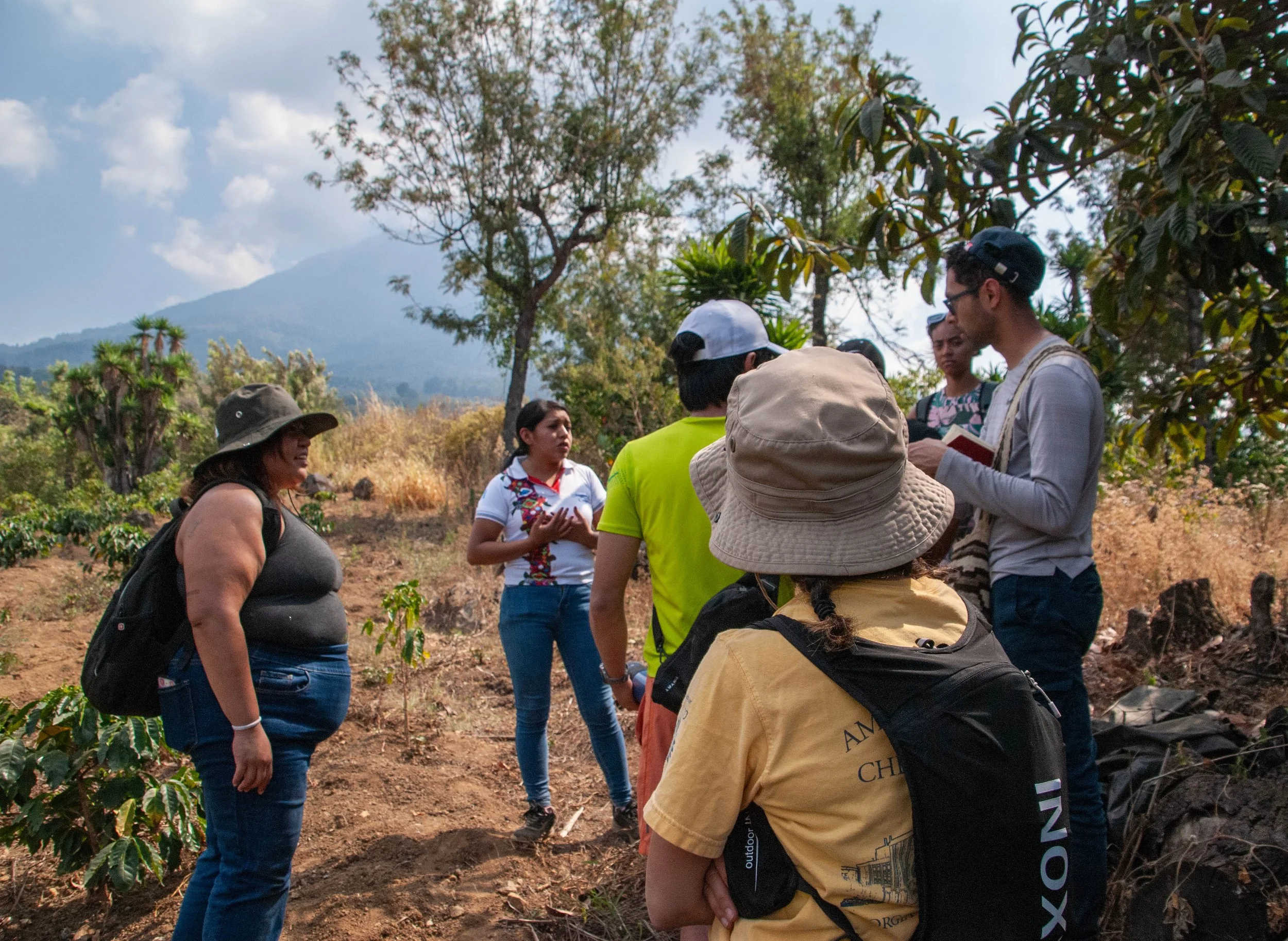
Supporting More Than Coffee | How Coffee is Supporting Education and Community Growth in Guatemala
This International Day of Education highlights a hard truth — not every family can afford to send their children to school. At De La Gente, our work has created a change as we establish more opportunities for small-scale coffee producers in Guatemala. In relation to supporting education, we have been able to create opportunities for young coffee growers to further their knowledge of coffee production or pursue a different career path.
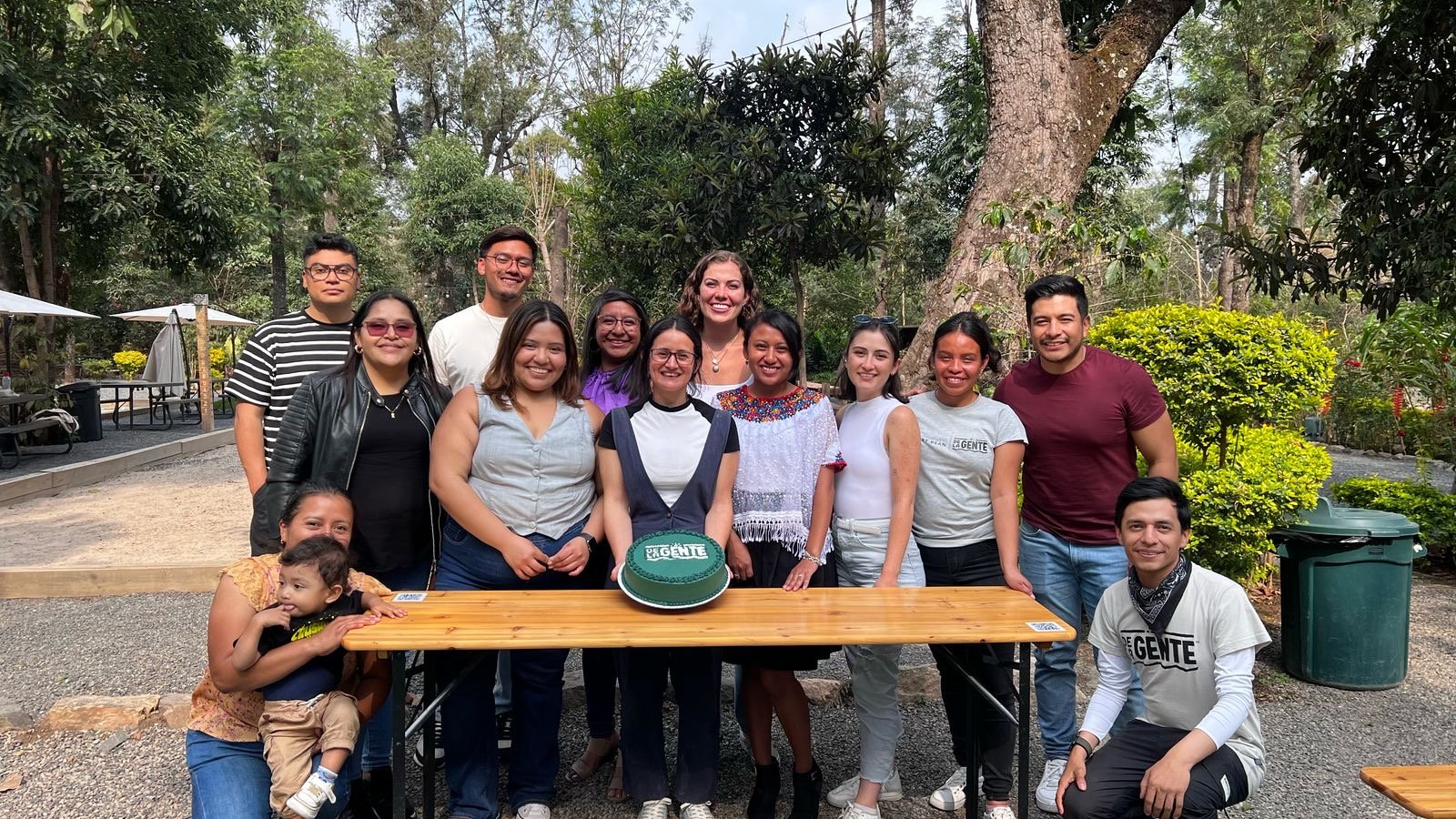
Reflecting on the New Year as We Continue Creating Change in 2026
As we close 2025 and anticipate another year of creating change in Guatemala's coffee growing communities, we’d like to dedicate time towards reflecting on the new year – emphasizing some of the strengths we’ve had in terms of organizational growth and briefly discussing some of the major changes we’ve witnessed in the coffee industry. In this article, we will be discussing some of the year’s highlights and how we’ve turned challenges into opportunities.

Giving Back This Festive Season | How Your Donation Creates Positive Impact in the Coffee Journey
When you give back this festive season, your donation creates a positive impact and isn’t just a gesture of goodwill, but becomes the seed for new opportunity and growth. Every donation creates a ripple effect across coffee growing communities in Guatemala – empowering the next generation of coffee producers, ensuring sustainable livelihoods for communities, and building resilience required for the next year’s harvests. Your gift supports the future of coffee producing families in Guatemala and our team as we drive meaningful change in each stage of the coffee journey.

Why Join a De La Gente Origin Trip? A Deeper Look at Coffee at Its Source
When you travel to Guatemala with De La Gente on an Origin Trip, you’re not just visiting farms—you’re looking at coffee at its source and stepping into its story. Our trips are designed for both industry professionals and passionate coffee drinkers who want to go beyond the café and understand what really shapes the flavors in their cup.

A Global Day of Giving Thanks | Community Impact During the Season of Giving
This season of giving, we’d like to encourage you to take a moment to read a cooperative impact story featuring some of the incredible community impact that you’ve made possible with your support and that we’ve been honored to be a part of. Every act of giving fuels these efforts – proving that when people come together with compassion and commitment, lasting change is possible. The goals of our partner cooperatives along with our shared mission at De La Gente have been achieved, and continue to do so, all thanks to you.

Coffee Connects | Coffee Moments Create A Global Coffee Community
By the late 1800s, coffee had become a worldwide commodity, giving rise to its desire in everyday life, inspiring coffee moments shared across continents. Nations and communities began embracing coffee as each region developed a love for it and even created somewhat of a ritual – showcasing values and coffee moments turned into rhythms of everyday life. Individual societies were suddenly connected through coffee, but based on customs, such as Turkish customs of reading fortunes in coffee grounds or the quick pause for an espresso break in Italy.
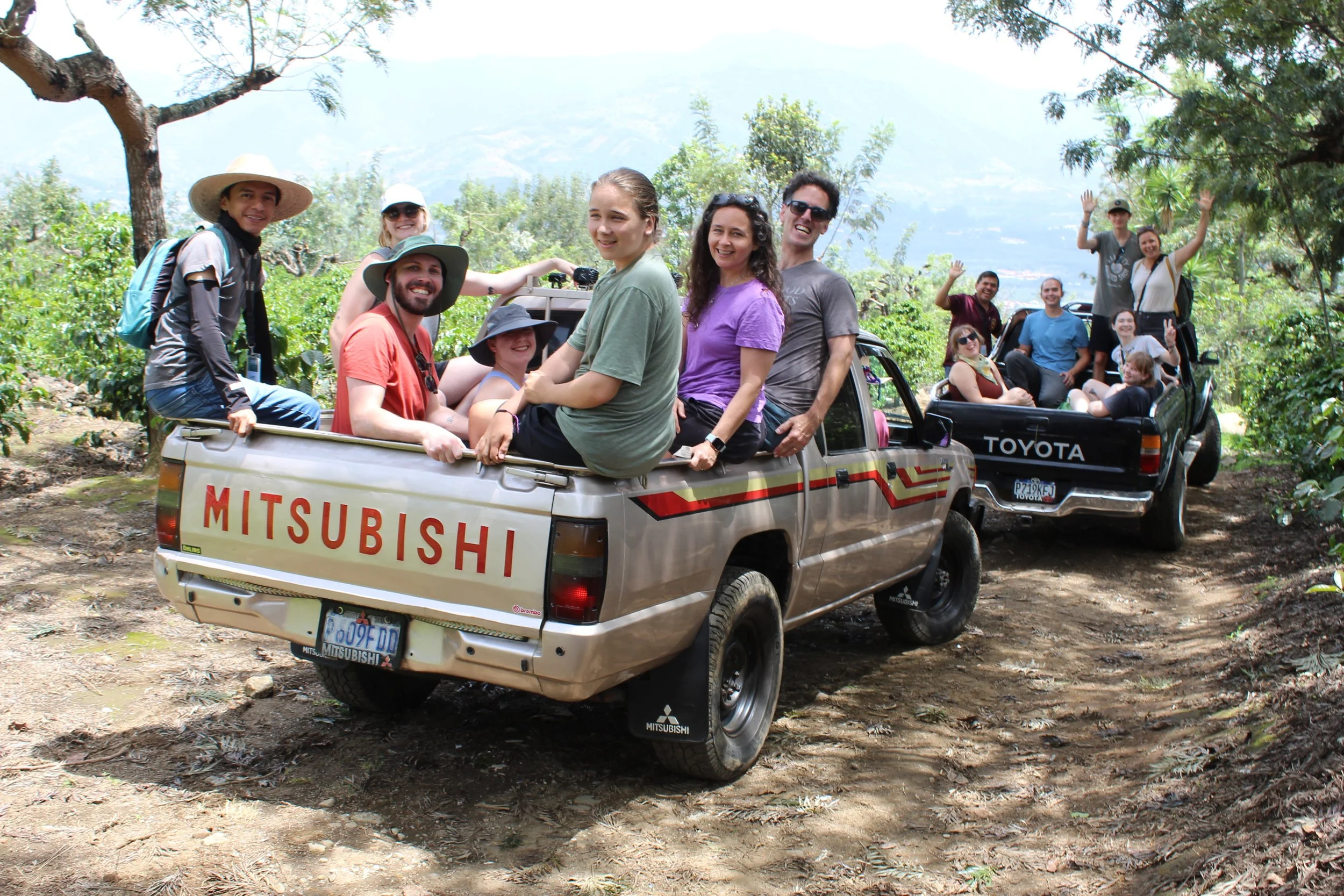
What’s an Origin Trip — And Why it Matters (Even if You’re Not in the Coffee Industry)
An origin trip is a chance to step into a journey. It means traveling to the very places where coffee begins, meeting the farmers who grow it, and experiencing firsthand the landscapes, traditions, and communities that shape every bean.

The Young Group of Coffee Producers Who Represent What’s Next in Coffee
A young group of coffee producers located in the Antigua coffee growing region of Guatemala is also the next generation that is showcasing innovation in coffee, while shaping the future of their community. With fresh ideas, innovative energy, and curiosity that motivates them to play an active role in envisioning new business ideas, but also shaping the future of agriculture and coffee in Guatemala.
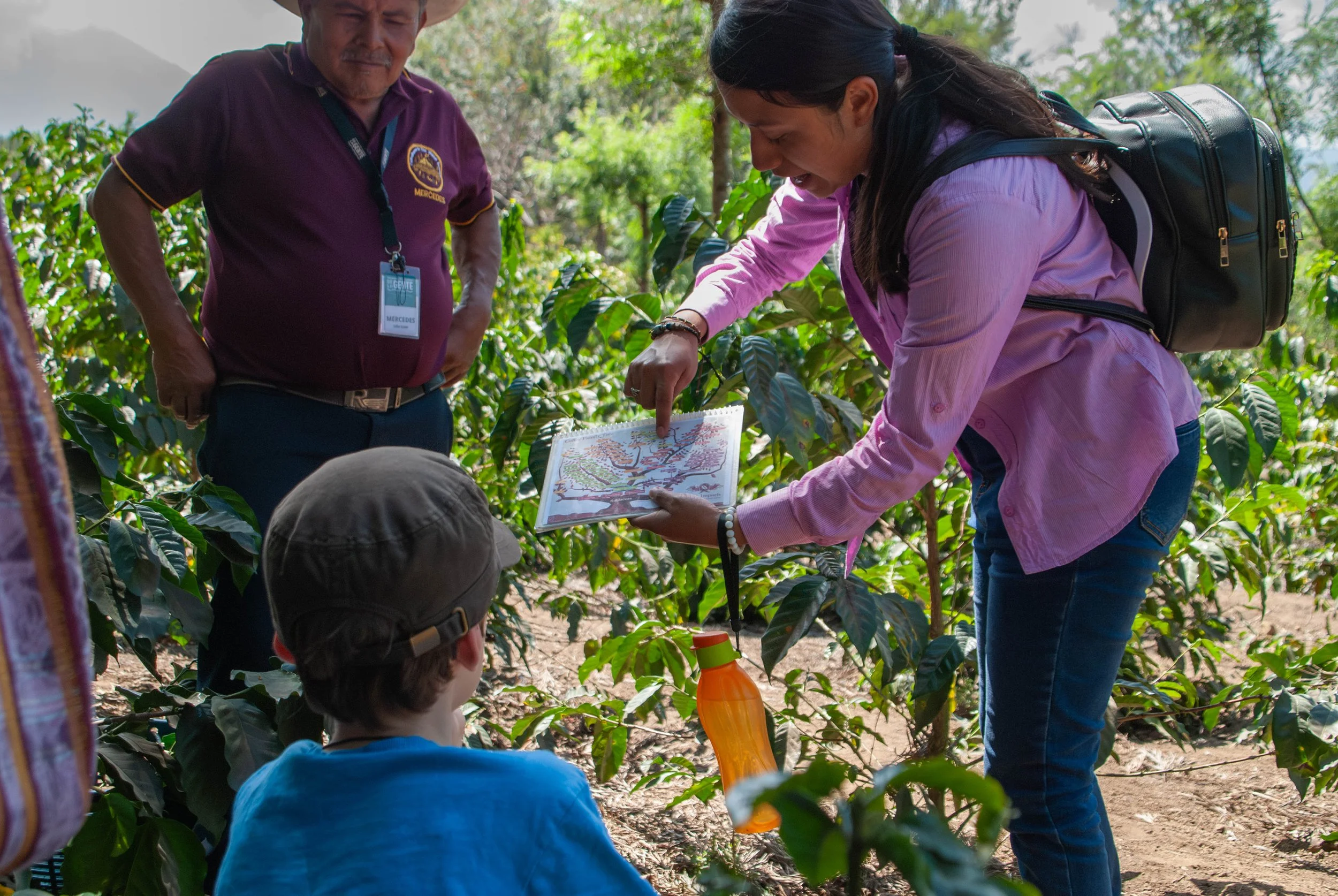
Interpreter Roles Set the Stage for Meaningful Moments in Local Tourism
When you see coffee, we see opportunity. For De La Gente, the interpreter roles in our Community Tourism Program facilitate communication between tourists and visitors, making every experience something beyond special and unique. These roles are essential to authentic, respectful, and transparent tourism experiences.
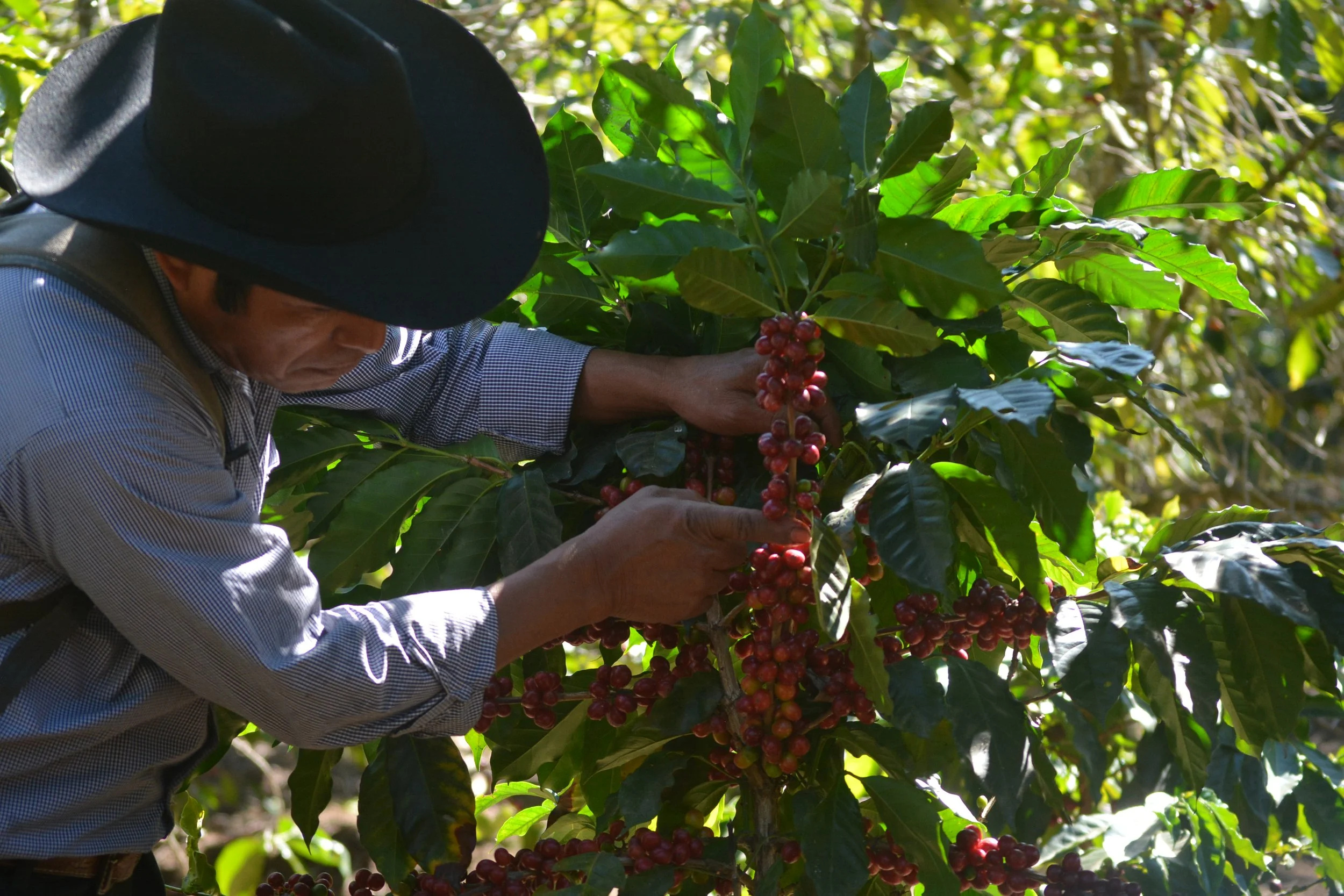
The Indigenous Farming Community of Ija’tz Cooperative - Traditional Farming that Sustains Coffee and People
Groups of coffee producers in Guatemala remain true to their heritage by continuing the use of traditional farming. As agriculture evolves and modern farming methods become more widespread, this is not only important to the environment, but also to their heritage - honoring the work of their ancestors through coffee cultivation.

